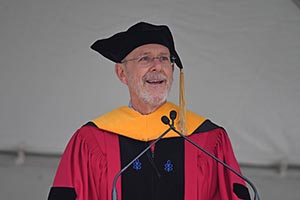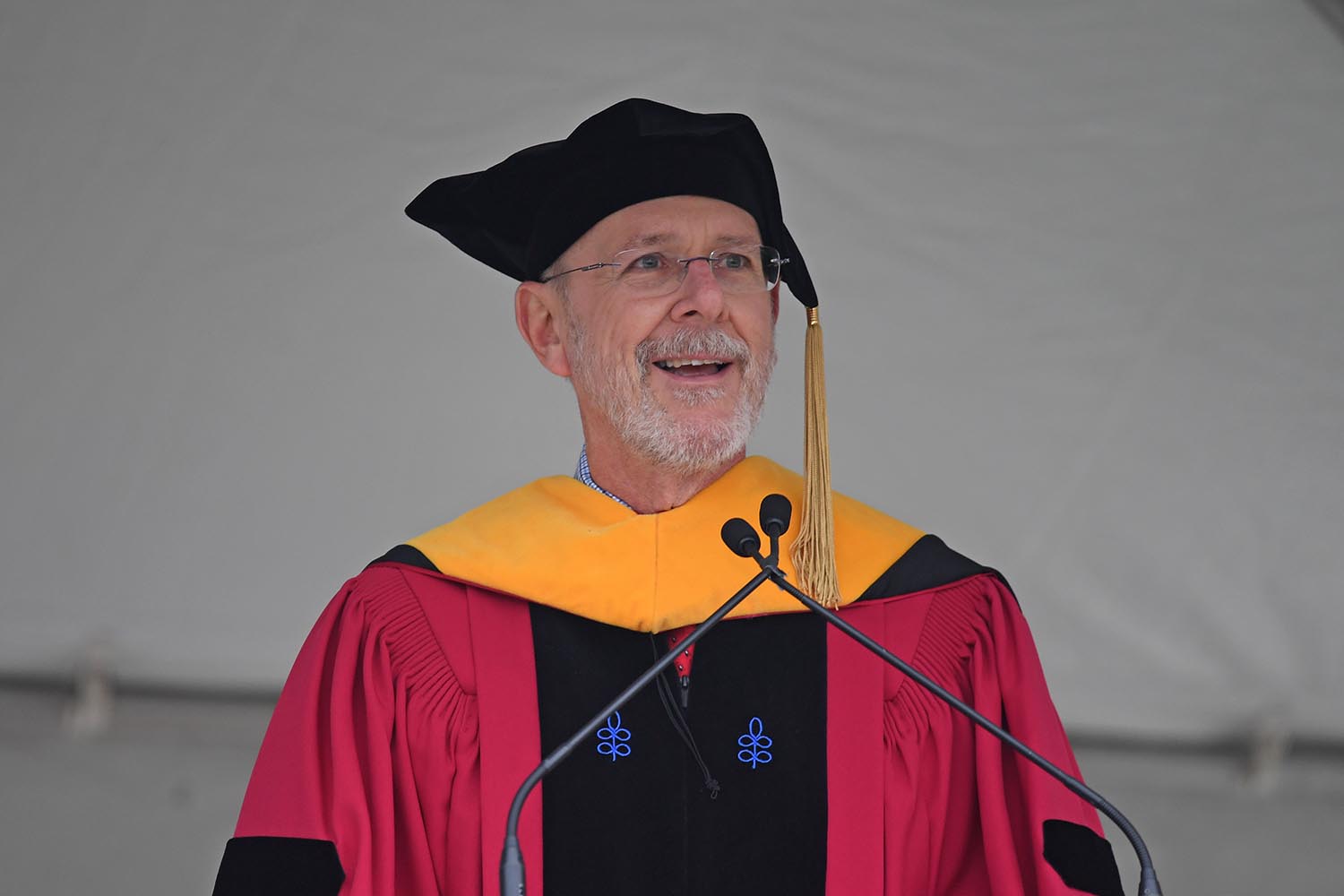Boger ’73, P’06, ’09 Makes Remarks at 2018 Commencement


Joshua Boger ’73, P’06, ’09, founder and former chief executive officer of Vertex Pharmaceuticals and former chair of the Wesleyan Board of Trustees, received an honorary doctorate during Wesleyan’s 2018 commencement ceremony on May 27. As the founder and former chief executive officer of Vertex Pharmaceuticals, Boger led the discovery and development of new pharmaceuticals for treating some of medicine’s most daunting challenges, including HIV, hepatitis C infection, and cystic fibrosis. Currently, he is chair of the campaign for Massachusetts gubernatorial candidate Setti Warren, vice chair of Boston’s Museum of Science, chair of the board of the Celebrity Series (Boston’s premier performing arts presenter) and chair of the fundraising campaign for Harvard Medical School, where he is chair emeritus.
Boger’s speech is below:
Wesleyan Class of 2018: When I sat where you sit now, some 45 years ago, in 1973, we impetuously embraced a popular mantra of the times: “Don’t trust anyone over 30.” Now I thought that was a pretty good idea then . . . and I think it’s an even better idea now.
My generation has done some good things. We ended the war in Vietnam. We sequenced the human genome. We brought you the personal computer and then the iPhone. But on the biggest societal challenges of our time—such as the environment, income disparity, and the affordability of higher education—we haven’t done so well. Overall, I’d give us a solid “C.” (That’s a “Wesleyan A-Minus.”)
In 1973 the atmospheric carbon dioxide (CO2) level was about 329 parts per million. That level today, as you undoubtedly know, is over 410 parts per million, and rising—a climate-changing pivot point never seen before in recorded human history. Yes, we’ve protested, we’ve written op-eds, and we’ve bought Priuses, but awareness and tokenism isn’t going to address this existential threat.
In 1973 the problem of student debt was little talked about. I can’t even find reliable numbers, but it was certainly under $10 billion total in the United States. Now that maybe sounds like a big number, but as you well know, student debt is now more than 150 times higher than that, approaching $1.5 trillion. This debt crushes opportunity for too many people and threatens to trigger the next big financial meltdown.
My generation has generated tremendous economic growth, but we are driving blindly toward almost certain societal cataclysm, with income disparity and inequality of economic opportunity at levels that would embarrass the robber barons of the nineteenth century. In 1973 the top 1% took in just under 9% of all income. Today, the top 1% claims 23% of all income.
And then there was the depressing 2016 election. The majority of the country and I are really sorry about that one, but you also may have been unwittingly responsible as well. Elections are about outcomes, not about sending messages. Amoral tribalism and rejection of a common purpose threaten us all.
Which brings me to my humble advice for you: Take charge. Do not wait your turn. The defining characteristic of leaders is that they lead. And the essence of leadership is getting results. To get results you have to seize your shot: Alexander Hamilton was 21 years old, in 1776, when he stepped forward to help create this nation.
My generation has bequeathed to you huge unsolved problems. Protest alone is for people who do not believe they are powerful or who believe their responsibility ends at protest. You can solve these problems. We all need you to solve these problems. And you soon-to-be Wesleyan graduates can handle the paradox of me telling you this—don’t trust anyone over 30 to solve them for you.

